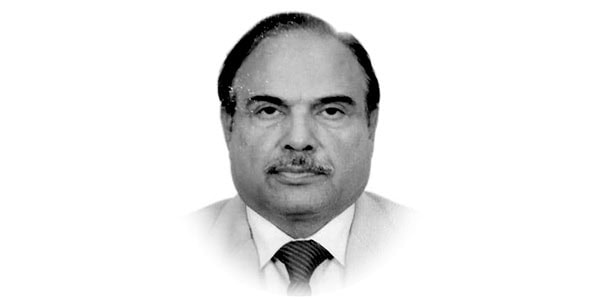ECP directives to be obeyed
THE Supreme Court of Pakistan issued a historic judgment denouncing the dissolution of the National Assembly by the president of Pakistan on 03 April and ordered Prime Minister Imran Khan to face the vote of no confidence on Saturday (09 April).
Before the verdict announcement, the Chief Justice of Pakistan asked Chief Election Commissioner of Pakistan Sikandar Sultan Raja to explain if the Election Commission is ready to hold general election.
He explained that the Election Commission would be taking a minimum period of four months to conduct the delimitation and another 90 days for the general election.
Although the Chief Election Commissioner explained that despite repeated requests to the government to allow delimitation of the constituencies, it could not be held in time.
The Chief Election Commissioner said that he personally wrote 16 letters to the government from May 2020 to 2021 seeking permission to conduct the delimitation but the government was interested in digital census.
The final letter was written in January 2022, he said, addicting that delimitation has to be held in the entire country for which they would be needing four to seven months.
Separately, in its response to a letter from the presidency, the Election Commission held that it would require at least four additional months to complete the exercise of delimitation.
Elections could safely be held honestly, justly fairly as ordained in Article 2018 of the constitution, in October 2022.
The Election Commission of Pakistan said that it was not the sole authority to make decisions with regards to the conduct of elections and it remained dependent.
Under law upon the federal government and provincial governments for required feed back.
In case of any inaction or delay on the part of any government to perform its duties and to assist the Commission, the delay in conduct of delimitation cannot be attributed to the commission by any stretch of imagination.
It said the Election Commission of Pakistan is an independent constitutional entity, entrusted with the scared duty of organizing and conducting elections in terms of of the Article 2018 of the Constitution and to make such arrangements as are necessary to ensure that the elections is conducted honestly, justly, fairly and in accordance with the law and that corrupt practice are guarded against.
The Election Commission of Pakistan ordered delimitation of National and Provincial Assemblies constituencies on a war footing, without waiting for the digital census to commence.
Once again, the prime minister seems to have accepted the inevitable of his forced removal from office.
Barring another ill-advised trump card to disrupt or delay the vote of confidence, Imran Khan is unlikely to remain Prime Minister if proceedings in the National Assembly go according to the Supreme Court directions.
He seems to know it. in a comparatively more subdued address to the nation, on 08 April, he attempted to reclaim some lost pride by glossing over his party condemnable action this past week, describing them as well meaning attempts to protect national sovereignty.
But though he is disappointed in the Supreme Court stern ruling on his party shambolic attempt at dictating a way out of the no trust crisis.
With the success of the no confidence vote against the Prime Minister, the incoming government may not be in hurry to hold elections.
Nevertheless the Election Commission of Pakistan needs to be fully prepared to hold polls within 90 days.
This is by no means an easy task, given the numerous technical challenges that the ECP faces at the moment for instance, the Commission cannot realistic ally be expected to organise a fair election within the stipulated time-frame, until the delimitation of constituencies, required by law since 2017 census was formally notified, is properly notified is properly completed.
The process had been delayed because government had told the Election Commission of Pakistan to wait as it wanted to hold a fresh digital census ahead of the 2023 elections, which would have necessitated its own delimitation exercise.
However the Election Commission now decided to complete delimitation without waiting for the digital census.
Though the PTI, which has momentum behind it, will wish for an immediate election on the basis of the old constituencies, as was done in the 2018 elections, the circumstances are changed this time.
There has been a change in the number of National Assembly and PA seats for erstwhile FATA under the 26th Amendment, which will necessitate the redrawing of constituencies boundaries for KP, will need to be reconfigured as well.
There are other challenges too, under which EVMs and oversees voting were introduced. Both measures require significant investment of time and money to implement, and it is simply not realistic to expect this to be done within a 90 days period.
Quick decision will need to be taken in order to ensure elections can be held in a timely manner, one of the major priorities should be to facilitate the Election commission in carrying out the delimitation exercise and completing it within the shortest possible period.
It is very important for the sake of political stability that parties also work together to strengthen the role and powers of the ECP to help improve the quality of the next elections.
The Election Commission has a critical role to play in ensuring polls do not fall prey to the same controversies and squabbles as the previous ones have.
It is also important for all political parties to reach an understanding that the mandate of the ECP has to be respected and its directives obeyed.
—The writer is former Secretary Election Commission of Pakistan and currently Chairman National Democratic Foundation.










